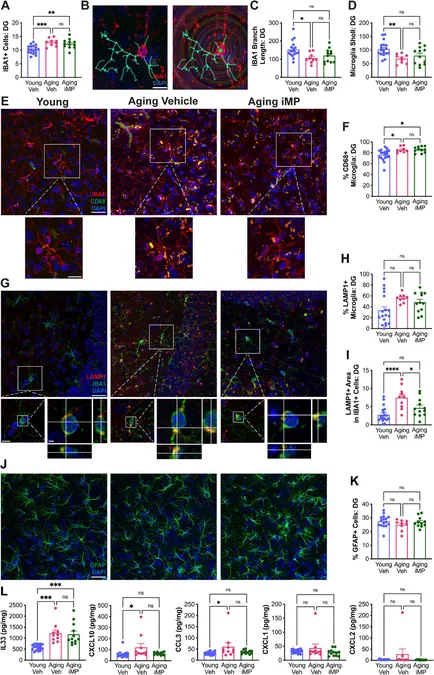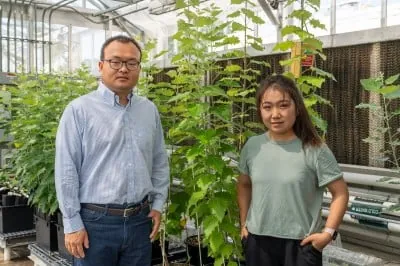
Revolutionary 'Young' Immune Cells Could Transform Alzheimer's Treatment
2025-09-01
Author: Ming
Breakthrough in Neurodegenerative Disease Research
In a groundbreaking study, scientists at Cedars-Sinai have harnessed the power of 'young' immune cells to combat aging and symptoms of Alzheimer's disease in laboratory mice. Published in the journal *Advanced Science*, this research offers a tantalizing glimpse into potential therapies for neurological disorders affecting humans.
The Science Behind the Cells
These innovative immune cells, derived from human stem cells, present a significant leap beyond previous research which focused on using transfusions of blood or plasma from young mice. Clive Svendsen, Ph.D., who led the study, explained, "Our method involves creating young immune cells in the lab, and our findings reveal they hold remarkable potential for both aging and Alzheimer's mouse models."
How Do Young Immune Cells Help?
The immune cells in question, known as mononuclear phagocytes, play an integral role in eliminating harmful substances from the body. However, their efficacy diminishes with age. In this study, scientists produced these cells by reverting adult cells to an embryonic-like state. When these 'young' cells were introduced to aging mice and those with Alzheimer's, a series of remarkable benefits were observed.
Significant Cognitive Improvements
Mice treated with young immune cells not only excelled in memory tests but also exhibited a higher count of "mossy cells" in the hippocampus—a region critical for memory and learning. Alexendra Moser, Ph.D., a leading scientist on this project, noted, "The preservation of mossy cells in these treated mice might explain the memory enhancements we documented."
Healthier Immune Systems in Aging Brains
Moreover, mice receiving the young phagocytes showcased healthier microglia, the brain's immune cells responsible for clearing debris. These microglia remained robust and active compared to their counterparts in untreated mice, where aging and Alzheimer's typically cause a reduction in their effectiveness.
Uncovering the Mechanism of Action
The exact workings of how these young immune cells exert their benefits remain under investigation. While they did not seem to penetrate the brain itself, researchers theorize they may release anti-aging proteins or absorb harmful factors from the bloodstream, thereby protecting the brain. Ongoing studies aim to clarify these mechanisms further.
A Glimmer of Hope for Personalized Treatment
With the potential for unlimited availability due to their stem cell origins, these young immune cells could herald a new era in personalized therapy for age-related cognitive decline. Jeffrey A. Golden, MD, emphasized, "These findings underscore that short-term therapies can indeed enhance cognition and brain health, positioning them as a promising strategy to combat Alzheimer's disease and age-related cognitive impairments."




 Brasil (PT)
Brasil (PT)
 Canada (EN)
Canada (EN)
 Chile (ES)
Chile (ES)
 Česko (CS)
Česko (CS)
 대한민국 (KO)
대한민국 (KO)
 España (ES)
España (ES)
 France (FR)
France (FR)
 Hong Kong (EN)
Hong Kong (EN)
 Italia (IT)
Italia (IT)
 日本 (JA)
日本 (JA)
 Magyarország (HU)
Magyarország (HU)
 Norge (NO)
Norge (NO)
 Polska (PL)
Polska (PL)
 Schweiz (DE)
Schweiz (DE)
 Singapore (EN)
Singapore (EN)
 Sverige (SV)
Sverige (SV)
 Suomi (FI)
Suomi (FI)
 Türkiye (TR)
Türkiye (TR)
 الإمارات العربية المتحدة (AR)
الإمارات العربية المتحدة (AR)